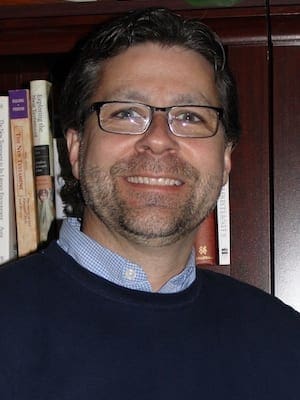One of the greatest events in modern history was the tearing down of the Berlin Wall in 1989.
For almost three decades, this wall stood as a visual reminder of the hostilities that existed between the parties on either side of the wall.
The demolishing of this wall brought a new sense of hope to the world and the beginning of a new relationship between countries that once were enemies.
Yet across the world, walls remain between groups of people who often do not trust one another and who do not care to associate with one another.
Some are physical representations of one of the fundamental problems of human societies: a deep fear of the other.
Non-physical walls that keep us from building authentic community also exist, a reality addressed in Ephesians 2:11-22.
These verses assert that in the incarnation of Jesus, God was bringing about a new creation.
This involves not only those individuals who became new creations in Christ, but also one new humanity in which the barriers between two specific groups of people, Jews and Gentiles, were brought down in order to bring the two into one.
In Christ, the wall of division has been brought down; the two people that once existed apart from each other are now one new humanity.
This transformation in relationship is not God’s attempt to create two covenant people, Jew and Gentile, and the Gentiles do not take the place of Israel.
Rather, the Gentiles have been brought near to God and are now joined in union and in peace with God and God’s people.
Peace is at the center of this passage. The word appears four times connected to our peace with God through Christ as well as our peace with others. This kind of peace is certainly needed now to break down other walls.
As we have seen even in the last few weeks in witnessing the heinous shooting of African-Americans in their own church, violence continues to plague our homes, neighborhoods and countries.
Division and fragmentation continue to work against God’s desire and dream for true community based in love and peace. The problem is that while we desire community, we often cannot find authentic community.
We don’t know everything about the gunman that took the nine lives in the Emanuel AME Church, but I wonder about his community and whether or not he had a community that nurtured something other than racist hatred.
Would it have made a difference if he had a loving and caring community that offered him both acceptance and accountability? Would this have nurtured him to be a different person?
I wonder and reflect also about the fact that we continue to allow these tragic events to be possible.
Our radical individualism, as much as we take pride in this as U.S. citizens, has caused us to lose the view that we are a collective society.
Even if we show concern for others and seek community with them, we are more likely to do so with people who look like us and who agree with us.
Yet Ephesians reminds us that Christ came to bring peace and community among all people.
And, if we read the gospels carefully, we find that Jesus was concerned with community, including the mission to bring those who had no community into his community.
In his mission, Jesus, as the writer of Ephesians puts it, created “in himself one new humanity in place of the two, thus making peace.”
The message of peace, reconciliation and unity cannot be limited only to the divisions that existed between Jews and Gentiles.
Christ’s death was an act of God to bring all people into a new relationship with himself and with others.
No longer are we to stand on either sides of the wall vilifying each other. In Christ, God has brought us near to God’s self; thus, we are near to people from all walks of life.
God desires to destroy the barriers that divide us and Christ teaches us to embrace others.
To embrace others means we are called to be peacemakers. As Jesus plainly stated, “Blessed are the peacemakers, for they will be called children of God” (Matthew 5:9).
In the closing verses of Ephesians 6, the writer uses the image of the Temple, a structure that once stood in Jerusalem and symbolized the division between Jews and Gentiles.
Ephesians states, however, that in Christ the two people have become one united holy temple in which God dwells.
This temple is never finished or closed; it is a living, ever-growing, inclusive temple.
It is a community of faith that seeks to bring near those who are far off, that seeks to welcome aliens and strangers, that seeks to bring hope and community to those who do not have these.
As we participate in God’s work, we cooperate with the spirit of God in fulfilling God’s dream to continue to break down walls and create one new humanity of peace.
 Drew Smith, an ordained Baptist minister, is director of international programs at Henderson State University in Arkadelphia, Arkansas. He is the author of “Reframing a Relevant Faith.” A longer version of this column first appeared on his blog, Wilderness Preacher, and is used with permission. You can follow him on Twitter @WildernesPreach.
Drew Smith, an ordained Baptist minister, is director of international programs at Henderson State University in Arkadelphia, Arkansas. He is the author of “Reframing a Relevant Faith.” A longer version of this column first appeared on his blog, Wilderness Preacher, and is used with permission. You can follow him on Twitter @WildernesPreach.
Assistant Director of the Honors College at Henderson State University in Arkadelphia, Arkansas.

